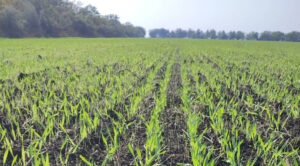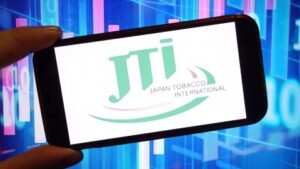
South African businessman Errol Musk, father of billionaire Elon Musk, made an exploratory visit to Bosnia and Herzegovina and Serbia, assessing the region’s potential for establishing an Institute for Gravitational and Space-Time Research, which would focus on gravity, space-time, terraforming, and longevity, Reuters reports.
Musk had previously considered Dubai as a potential location but abandoned the idea after friends from the Balkans persuaded him to personally evaluate the potential of Serbia and Bosnia.
He stated that he was pleasantly surprised by the level of infrastructure, business environment, and accessibility, noting: “the economy, the behavior of people… it’s idyllic.”
Representatives of the Chamber of Commerce of the Federation of Bosnia and Herzegovina presented him with an educated workforce and economic potential and offered facilities for the future institute.
Errol Musk visited Serbia and Austria as part of a preliminary regional assessment and expressed confidence that the Balkans represent a more economical and efficient solution than Dubai.
Musk envisions the institute as a privately-run platform, independent of governments, attracting professionals “not under ideological pressure” and interested in radical scientific research. The proposed research areas include gravity, space-time, nuclear fusion, and longevity — topics that go beyond conventional academic science.
Although no final decision has been made, Bosnia and Serbia are being considered by Errol Musk as more cost-effective locations with better human resources than the alternatives.

PJSC “Lviv Regional Production Fish Factory” has opened an innovative fish processing plant in Lviv region, according to the press service of the State Agency for Land Reclamation, Fisheries and Food Programs.
According to the report, the plant’s capacity of 6,800 square meters allows it to process up to 25 tons of raw materials and produce 12.5 tons of finished products daily. Both fish from its own farms and imported raw materials are used for production.
The plant has three levels: two production floors and a technical floor where the engineering systems are located. The space is divided into four main areas: ramps for loading raw materials and shipping finished products, “wet” rooms for processing raw, salted, and smoked fish, “dry” rooms for the production of preserves and semi-finished products, and sanitary and utility rooms for personnel.
The plant has implemented international food quality and safety management systems (ISO 9001, ISO 14001, ISO 22000), which will enable the company to not only supply the domestic market but also export its products.
Once full production capacity is reached, 283 new jobs will be created. The company currently employs 82 people. Last year, it produced 1,382 tons of products and paid UAH 6.4 million in taxes to the budget.
Plans include expanding the export line, introducing biotechnologies for waste disposal, creating a related feed production facility, and entering new international markets.
“We are honored to open the largest fish processing plant in Eastern Europe. This is not just a production facility — it is a strategic step in the development of national aquaculture. We are not only investing in processing, but also changing our approach: from farming to delivering high-quality, safe, and tasty end products to consumers. Thanks to modern technologies, we are improving recipes and striving to change the culture of fish consumption in our country,” said Taras Vysotsky, Deputy Minister of Economy, Environment, and Agriculture.
According to him, the ministry will continue to work on promoting the consumption of domestically produced fish among Ukrainians. In particular, fish continues to be purchased at auctions on the Prozorro.Prozori platform for the Armed Forces of Ukraine, penitentiary institutions, law enforcement agencies, etc.

Agrotrade agricultural holding company has achieved a record winter wheat yield in the Chernihiv region of 8.4 tons/ha of net weight, or 150% of the planned target, according to the company’s press service on Facebook.
“High yields were also recorded in one of the fields in the Sumy region — 8.15 tons/ha, or 136% of the target. And this is only 20 km from the border with the enemy. This is further evidence of the resilience of our team and the effectiveness of agricultural technologies even in difficult conditions,” the statement said.
Agrotrade emphasized that these results are not accidental, but the result of systematic work. The agro-industrial department analyzed previous seasons, reviewed cultivation technology, and made specific adjustments from nutrition to protection, the release said.
“This year, we have improved our winter wheat cultivation technologies. We used fractional nitrogen application, double fungicide protection of the ear, and complete control of grass weeds across the entire area — this is not a very common but extremely effective practice. We removed all the weeds, leaving only the crop, and this yielded results. In addition, we update our variety portfolio every year, introducing varieties that perform consistently well in our conditions. This season, everything came together: technology, preparation, and weather conditions,” explained Oleksandr Ovsianyk, director of the agro-industrial department at Agrotrade, as quoted in the report.
In the 2025 season, Agrotrade is growing winter wheat on 14,500 hectares in the Chernihiv, Sumy, Poltava, and Kharkiv regions. Currently, more than 80% of the production area has been threshed. The winter harvest will soon be complete, the agricultural holding concluded.
The Agrotrade group of companies is a vertically integrated holding company with a full agricultural cycle (production, processing, storage, and trade of agricultural products). It cultivates over 70,000 hectares of land in the Chernihiv, Sumy, Poltava, and Kharkiv regions. Its main crops are sunflower, corn, winter wheat, soybeans, and rapeseed. It has its own network of elevators with a total storage capacity of 570,000 tons.
The group also produces hybrid seeds of corn, sunflower, barley, and winter wheat. In 2014, a seed plant with a capacity of 20,000 tons of seeds per year was built on the basis of the Kolos seed farm (Kharkiv region). In 2018, Agrotrade launched its own brand, Agroseeds.
The founder of Agrotrade is Vsevolod Kozhemyako.

JTI Ukraine, one of the largest companies on the market, paid UAH 21.2 billion in taxes to the state budget in the first half of 2025, which is 75% more than in the same period of 2024.
“The main factors behind the growth were legislative changes, in particular the increase in excise tax rates, as well as improvements in the company’s operating performance and changes in the exchange rate,” the company said in a press release on Monday.
According to the press release, excise taxes traditionally accounted for the largest share of tax revenues, amounting to UAH 16.4 billion, which is 81% more than in the first half of 2024.
It is noted that VAT payments increased by 73% to UAH 2.76 billion as a result of stable demand, adaptation to regulatory changes, and balanced cash flow management.
“Significant growth was also recorded in other areas: income tax (+45%), customs duties (+37%), single social contribution (+24%), personal income tax and military tax (+36%),” according to a press release quoting JTI Ukraine CFO Olga Sulitska.
The company added that in the second half of the year it plans to strengthen risk management while maintaining stability in tax and social obligations.
JTI Ukraine is part of Japan Tobacco International (headquartered in Geneva), the international tobacco business of the Japan Tobacco group of companies (headquartered in Tokyo). It has been operating in Ukraine since 1999 and is currently represented by two companies with over 800 employees: JTI International Company Ukraine, with its central office in Kyiv, and four regional offices and a factory in Kremenchuk (Poltava region), JTI International Ukraine.
JTI Ukraine manufactures products for both the domestic market and for export to nine countries around the world. The declared investments over 26 years of operation amount to over $433.7 million, with additional investments of $60 million planned for 2024–2026 in the category of tobacco products for electric heating (TPE).
According to YouControl, JTI International Company Ukraine increased its revenue by 37.7% to UAH 18.60 billion in the first half of this year, and its net profit by 15.7% to UAH 1.11 billion.
Revenue of JT International Ukraine grew by 61.8% in January-June this year, to UAH 4.74 billion, while net profit doubled to UAH 1.23 billion, according to YouControl data.
As reported, another major player in the tobacco market, Philip Morris Ukraine, previously reported a 17% increase in tax payments for January-June 2025, to UAH 28.9 billion (excise tax – UAH 22.9 billion, VAT – UAH 5.4 billion).
According to the Ministry of Finance, excise tax revenues in the first half of 2025 increased by 45.7% to UAH 132.7 billion.

Insurance company PJSC IC “PZU Ukraine” (Kyiv) attracted UAH 1.322 billion in premiums in January-June 2025, which is UAH 255 million, or 24% more than in the same period last year, according to the company’s press release.
The largest increase in payments for the reporting period was recorded in the segment of compulsory civil liability insurance for owners of land vehicles (OSCPV) – by 41%, to UAH 429 million, or 32% of the total volume, CASCO – by 27%, to UAH 247 million, or 19% of the total volume.
In the first half of 2025, the company attracted UAH 325 million in insurance premiums under Green Card policies, which is 25% of the insurer’s total revenue and 26% more than in the same period of 2024.
Medical insurance accounted for 12% of the company’s portfolio, with the insurance company collecting UAH 160 million in payments under such contracts in the first half of 2025.
PZU Ukraine’s revenues from other insurance contracts in January–June 2025 amounted to UAH 160 million, or 12% of the total.
PZU Ukraine has been operating in the Ukrainian market since 1993. PZU Ukraine is supported by one of the largest insurance groups in Central and Eastern Europe, the PZU Group (which includes the parent company of PZU Ukraine, PZU S.A.).

A new group of Ukrainian children left for Baku on Monday as part of a rehabilitation program, Azerbaijan’s ambassador to Ukraine Seymur Mardaliev said.
“A new group of Ukrainian children left for Baku today as part of a children’s rehabilitation program offered by Azerbaijan. I am grateful to my colleagues from the Azerbaijani embassies in Ukraine and Moldova, who facilitated their smooth departure from Chisinau,” he wrote on social media.
According to the ambassador, 360 Ukrainian children have joined the program so far.